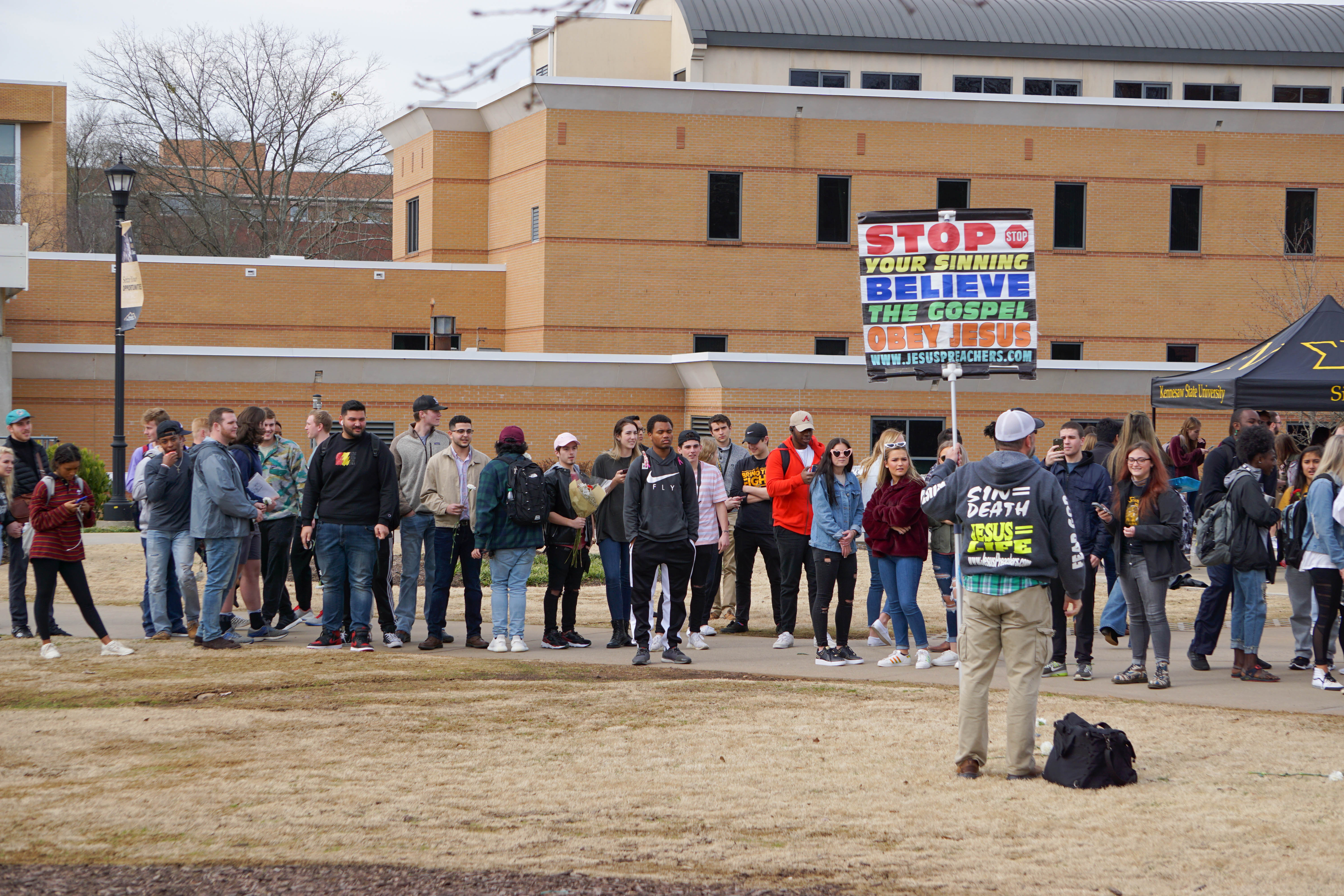Kennesaw State settled two lawsuits filed by student groups in October last year after changing its policies relating to free speech, echoing a similar lawsuit filed by a student group at the University of Georgia in 2014.
In May 2014, Young Americans for Liberty at UGA filed a lawsuit against UGA officials, including Kennesaw State President Dr. Pamela Whitten, who served as UGA’s provost at the time.
The complaint made at UGA cited similar concerns to the two more recent lawsuits filed by student organizations at KSU, stating that the university’s policies regarding free speech infringed on the students’ First Amendment rights, and were therefore unconstitutional.
The legal battle between UGA and YAL lasted several months, with the university filing several motions to dismiss the case before YAL voluntarily dismissed the complaint on Feb. 27, 2015, according to legal documents obtained by the Sentinel.
YAL filed its voluntary dismissal only nine days after UGA updated its freedom of expression policy. The update eliminated some of the policy’s ambiguous rules and altered some of its restrictive provisions, according to the Atlanta Journal-Constitution.
The lawsuits at KSU were brought on in early 2018 by Ratio Christi, a Christian student organization, and Young Americans for Freedom, a conservative student group. Both organizations cited “unconstitutional” free speech restrictions that violated the First Amendment in their complaints against university officials.
KSU denied the allegations from Ratio Christi in a response to the complaint, which was filed in September.
The university later adopted a new freedom of expression policy in early October. Three weeks after the policy change, both lawsuits had been dropped.
YAL at UGA was represented in the lawsuit by the Alliance Defending Freedom, a legal organization that specializes in defending religious groups. ADF is the same organization that later represented both Ratio Christi and YAF in their lawsuits against KSU.
The new freedom of expression policy that KSU adopted after the YAF and Ratio Christi lawsuits is highly reminiscent of the policy that UGA adopted after its legal battle with YAL.
When asked whether or not Whitten’s experience with the YAL lawsuit at UGA had any effect on how the two lawsuits were handled at KSU, KSU Spokeswoman Tammy DeMel did not respond in time for publication.
Both university’s policies are prefaced by a promise from each university to uphold students’ First Amendment rights, especially those to free speech and the right to assemble peaceably. They each contain a system through which individuals or groups from the school can reserve areas for demonstrations and expression, but also specify areas that can generally be used without special permissions or notice.
Both policies also list provisions for groups who are not affiliated with the university to speak or demonstrate on campus, though these provisions are more restrictive than those that apply to students or faculty. At both KSU and UGA, unaffiliated demonstrators are restricted to the defined “public forums.” At KSU, the public forum includes certain zones of the Campus Green.
The policies also contain a guarantee from each university to not deny a person or group’s ability of free expression based on ideology or political opinions, even those that “contradict university ideals,” so long as demonstrations do not disrupt university activities.
KSU students recently brought up concerns about the policy when a man and his son who are not affiliated with KSU and do not live in the community visited the Kennesaw campus to share their beliefs on the Campus Green earlier this month.
“Kennesaw should be a private campus so people like this cannot be on campus,” freshman chemistry major Courtney Kettles said. “He is not a student, he is not an administrator, faculty or staff.”
“In the policy, they should include that it is specifically for Kennesaw students or Kennesaw staff and faculty,” Kettles continued. “Not just anybody to step on the campus and cause these kinds of situations and bring negative attention to this campus.”



